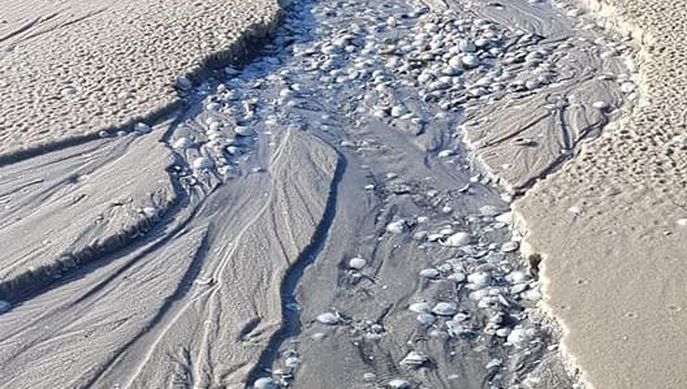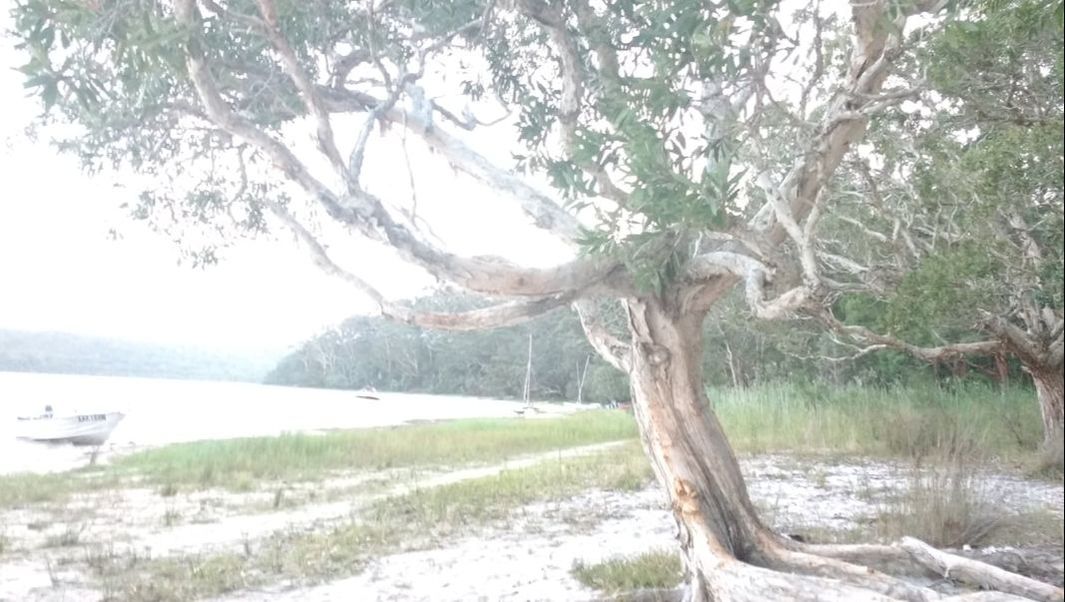|
There’s more than one mirror to the soul. The eyes have it, sure. But there’s something else that can take you right down, deep into the psyche: the spoken voice. When there’s no distracting visual cues, and you’re just listening, through earbuds or the radio you’ll find you get right in, to connect with the speaker. We know this from the honeyed and beloved tones of presenters like ABC RN’s Philip Adams or Geraldine Doogue - I’ve read the fan mail - their voices make people weak at the knees.
But it’s not just the classic radio sound that make a voice a powerful tool. The way air flows over vocal chords - the quavers, tremors, breaths and hesitations, the rush and tumble, the smokiness and growl, the lightness and melody - the very cracks and crevices - this tells us about the inner world like nothing else. The voice, whether jubilant or howling, gives it all away. As podcasts become ubiquitous and as online, essentially ‘print’ news services embrace the new form, there are some things to look out for. I’ve worked extensively in print, radio, podcast and online, and have some thoughts to offer. So, you’ve chosen well and your talent has a lot to offer. Research, life experience, commentary - they’re exemplary and you’ve picked them for what they know. But print or pod, not all interviews are the same. Print has it relatively easy and before you object, here’s why: your talent is awkward? Reluctant? Speaks in broken sentences? Leaves long gaps? Runs the ends of sentences together and pauses in the middle? Says ‘um’ or ‘like’ every few words, or has a verbal tic? No problem. Quotes can be elided to make sense, 'um's never happened, no one sees the ellipses implied by the hesitations. No one knows the guest's voice is flat, tired, irritable, disinterested or ‘hiding something’. When they make no sense the writer can summarise, and really only needs a few quotes. A fabulous picture of an awkward or unwilling guest can be painted in words, creatively describing the scenario but not making the listener live every dragged-out word. But the spoken word? The voice is a powerful instrument. So first, second and third is 'good talent', in one sense or another. You're going to need to hear mostly from them. As interviewer you don't get to encapsulate who they are and what they think, the way a writer can. Now, your talent doesn’t have to sound like a silken-toned radio host. But their voice must reveal something of their story. Passion, connection, engagement, intellect, grief: in some way, they need to be articulate. And your job, as interviewer, is to draw that out. And then there’s the unspoken word. When it comes to silence the only time a reluctant speaker is useful is when they have something to hide which you want to reveal. Those pauses, hesitations, have their own syntax which the audience will pick up. The dance between you as you dig further, becomes fascinating to hear. Other kinds of hesitations can be because the guest has lived something extraordinary they’re struggling to put into words - and their pauses are pregnant with reflection. But if the guest is just plain inarticulate or abrupt, impatient, or uninspired, if they hate being interviewed, they’re rendered shy, don’t know how to talk about their research, their novel, their poem, work or sport - your listener will turn away, no matter how important the information. There’s only so many 'um's you can cut out, and gaps you can close. Each one is perceptible, each cut makes the guest sound awkward. Their sum is greater than their parts. A skilled engineer and editor can fix this to a degree. But no one is a miracle worker. As an audio interviewer therefore, your craft is partly in seduction. Assuming here you have fair intentions, your job is to help your interviewee know you understand them, you care about what they have to say - even if you don’t agree with it - and vitally - they can trust you to do the right thing, whether or not that means asking hard questions. Difficult talent can be brought around to share something and I’ve done it many a time. It’s hard work. It’s emotionally taxing. But it’s rewarding. In essence you must develop some kind of mutual respect. And care must be taken, more so than in print, to to invite the audience in to your conversation and to do this it must be a conversation, a mutual give and take from the start. Without rapport your feature interview becomes a news brief. The interview dies on the vine. How to get to this fabulous state for your ideal podcast? The pre-interview is one way. Here you can make clear you value your guest and are interested in their perspective, that you’ve done some research and you have a plan. They’re in your hands, so they must trust you. Surprises in the interview proper are always good, of course, especially profound ones. But conversely, dead ends can get boring for a listener. It’s a good idea to eliminate the chances of these via a pre-interview. So, readers, radio makers and print journalists, what do you think? What have I forgotten here, and do you have any questions? I love to chat about the craft of journalism - do get in touch.
0 Comments
The other day a friend asked me to have a look at some writing for her. A candidate in the local council election, she had a Q and A in the local paper to hand in. She had 50 words per question and 10 minutes before deadline, and she showed me a series of dot point answers.
Fair enough, right? Dot points are an efficient way to get through plenty of information in limited space. But the trouble is, they’re not very friendly. If you’re trying to reach out to an audience, be it in community politics, stakeholders, potential financiers or a broad public, you need to invite them into your world, using language which compels them to keep reading. The best way to do that is to reveal a little of yourself and speak to the heart. This isn’t something you can manufacture, of course, but don’t be afraid to let some of your love for what you’re doing peek through. To save space, try using active rather than passive tense - ‘the man bit the dog’ instead of - ‘the dog was bitten by the man’ . It's more eye catching and energetic, but also efficient with the word count, allowing you a more space - to make that connection and issue that invitation. Sometimes the story is too big. Climate change is known as a 'hyper-object' - it's literally too big for our minds to comprehend. So we turn away. But that's a problem.
My profession drives me to tell stories. My passion is environment and science communication. So how do we tell meaningful stories about climate change? Well, I think we start by shrinking things a bit. From interplanetary in scale, let's get right down to local, and what people are doing in and for their own environments. And which medium works best for these stories? The alienation we feel at the thought of global warming can be countered with the intimacy of the voice. The podcast, something 'everyone' can do, brings the spoken words of real people and lived experience into the earbud. It's intensely close - the voice in the ear. With intimacy comes empathy and with empathy we can no longer look away. But also, the abstract, enormity of it all becomes an accessible solution. If we empathise, we understand the other, and we start to see what we can do - like for like. And with action, comes hope. The podcast is a powerful tool. With projects like my Hot Summer Land, Birdland and the Trees project, I asked people to talk about a tree they had loved, a bird they felt a connection to, a moment observing their own landscape. The stories were unique and thoughtful, and thought-provoking. The writers and audience read each others' work, and felt they were not alone. They could face the task in company. I love this medium, for its flexibility of style and content - from storytelling of matters of the heart and soul, to exploring practical solutions. For the way it brings the experts together with the people. And that - all of that - is powerful. |
AuthorRadio maker and passionate environmental communicator, Gretchen Miller is available to make you a podcast or teach you how to tell your story. Archives
August 2018
Categories
All
|
Proudly powered by Weebly



 RSS Feed
RSS Feed